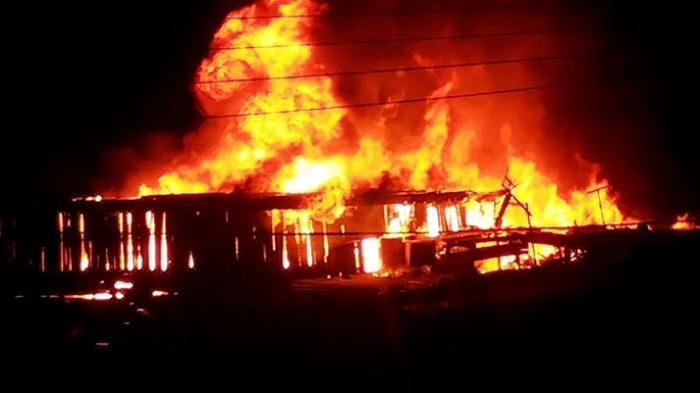
We need regular fire education
As a people, we cannot downplay good fire safety practices to protect lives and properties across the country.
Fire safety practices, it is said, are a way of life, for which reason it is imperative for every citizen to endeavour to adhere to best practices at wherever we find ourselves.
Advertisement
Yesterday’s inferno that swept through the top floor of the two-story Head Office Annex of the Ghana Revenue Authority (GRA) along the Ring Road Central in Accra is most disturbing.
Various items, mainly files and tax documentation belonging to the country’s major revenue authority, were destroyed while firefighters battled the massive fire that engulfed the building.
The incident has, once again, reignited the need for regular fire safety education by the Ghana National Fire Service (GNFS) to step up awareness across the country.
In schools, churches and mosques, at workplaces and within our communities, we cannot relent but continuously sensitise and educate the population on basic fire safety rules, measures and practices.
The GNFS itself must be more proactive than reactive and regularly organise public fire education programmes to create and sustain the needed awareness of the hazards of fire; heighten the role of the individual in the prevention of fires, provide technical advice for building plans in respect of machinery and structural layouts to facilitate escape from fire, rescue operations and fire management and inspect and offer technical advice on fire extinguishers.
Furthermore, as expected of the service, it must coordinate and advise on the training of people in fire-fighting units in institutions in the country, offer rescue and evacuation services to those trapped by fire or in other emergency situations and train and organise fire volunteer squads at the community level, as well as undertake any other function incidental to the objective of the service.
We also believe that a campaign focused on basic and senior high school students to inculcate safety consciousness in them will be a step in a positive direction.
As a society, we need to admit our guilt in some of the wrong practices that result in fire outbreaks and rededicate ourselves to be more careful and cautious in dealing with fire issues, so that outbreaks do not happen at all.
After all, when a fire starts, even if it is tackled at the incipient stage, one or two items will definitely be destroyed; therefore, it must be prevented at all cost.
But while public education on basic fire safety practices is critical, we also think public education on the operations of the GNFS to help the citizenry understand those operations better is equally sound.
Because of the lack of understanding of the operations of the service, alleged delayed response to fires, accidental or purported wrong technique in fighting a fire or rescuing victims, sometimes the public is not patient with fire officers who are discharging their lawful duties.
The public, therefore, needs to be enlightened to support the fire service in its quest to deliver quality services to the citizenry.
The management of fires is a shared responsibility and we all have a stake in ensuring a fire safety regime for the country.
All stakeholders, including the government, must also be committed to providing the needed logistics, including vehicles and protective clothing, for all firefighters to boost their work and make them effective.
Indeed, capacity building must also continue to be a major aspect of improving the effective service delivery of firemen.
Firemen themselves must endeavor to exhibit a high sense of professionalism, maturity, and discipline in the area of firefighting, road traffic extrication and good fire safety education.
These, in our view, will hopefully lead to a reduction in the spate of fires in the country.



